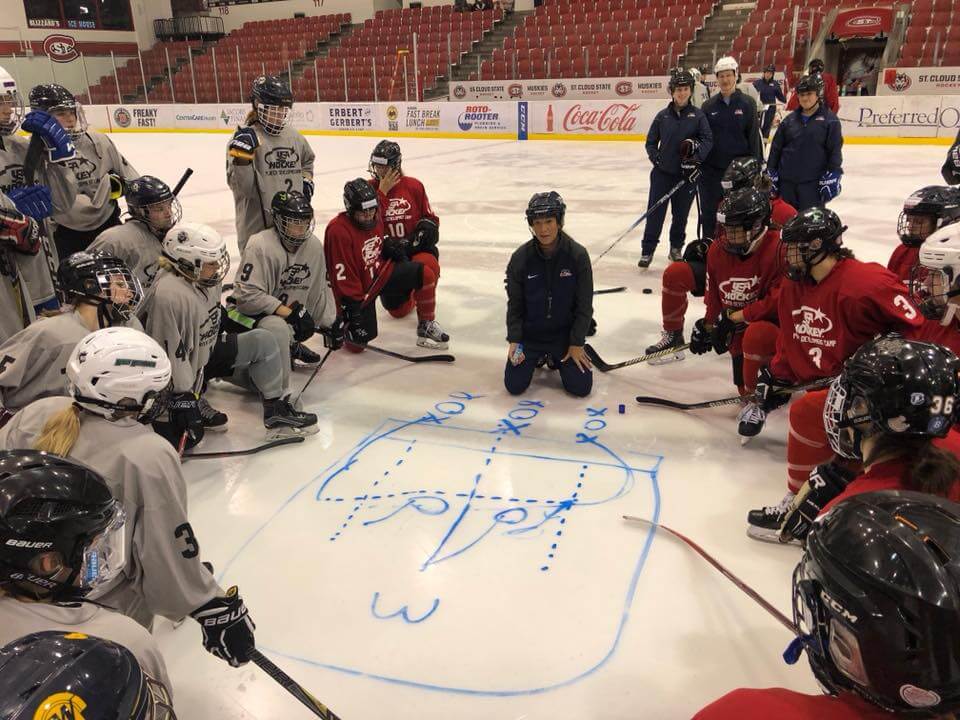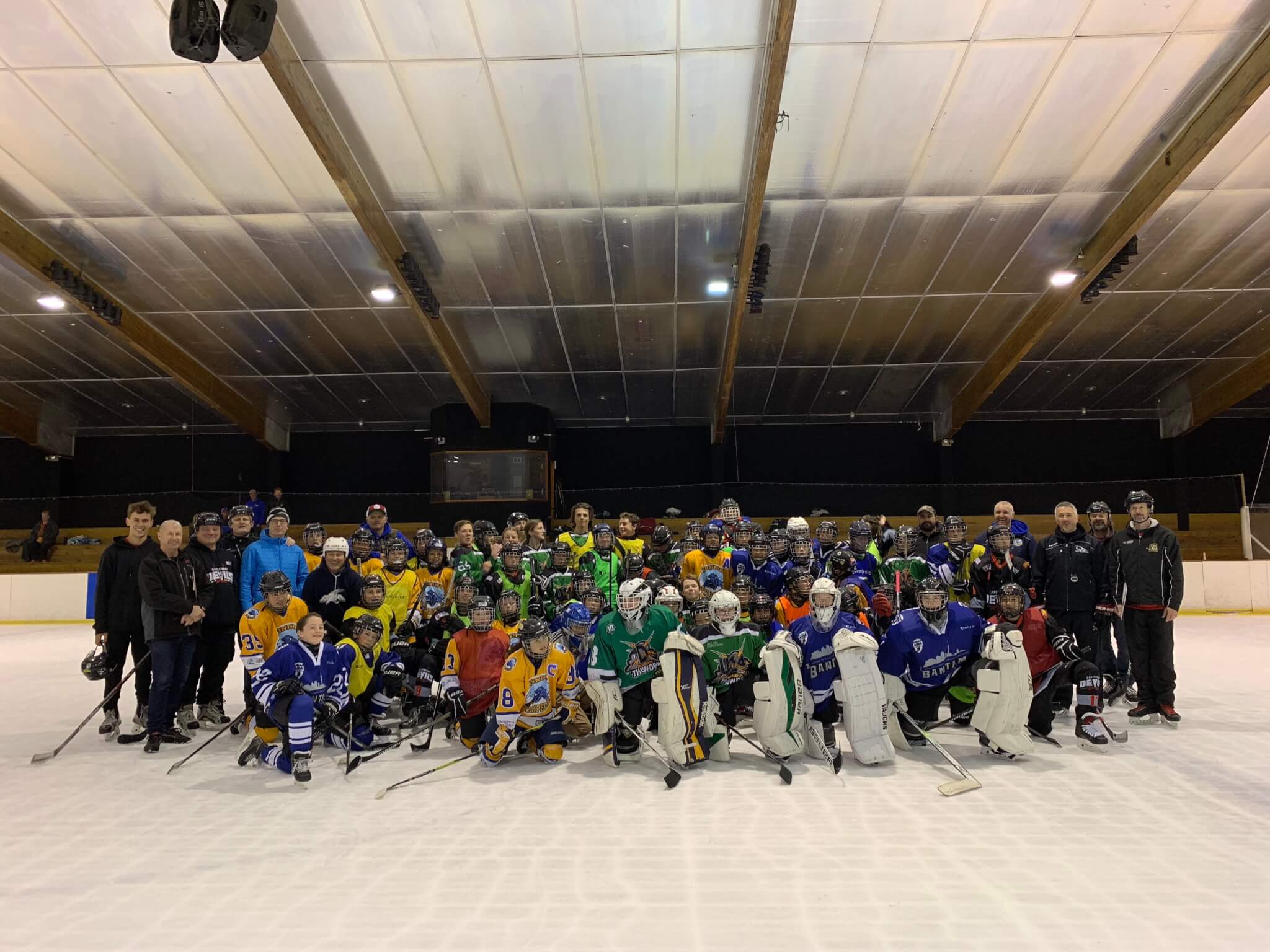USA HOCKEY COMING TO NEW ZEALAND
[vc_row][vc_column][rev_slider_vc alias=”home”][/vc_column][/vc_row][vc_row][vc_column][vc_column_text]
There’s an old cliché that gets bandied around in the business and sports world – “the company/team is in good hands”.
And that saying rings true with New Zealand Ice Hockey.
If you’re a parent or young player reading this, you no doubt have strong priorities when it comes to the future of you or your child’s athletic endeavours.
First and foremost, you want them to enjoy it. Secondly, you want them to be coached well, and have a path to progression – should they want it.
New Zealand ice hockey is setting down a massive precedent for this in 2020 as they roll out a series of camps to encourage the development of new coaches, increase player retention, and provide a consistent approach to the game as a whole.
They’ve enlisted the help of the IIHF (International Ice Hockey Federation) as well as big guns – USA Hockey – while continuing a strategy that has seen great success over the past few years.
(NZIHF NCC – National Coaching coordinator) Darren Blong lays down three priorities for the year and what the camps are all about.
“The first priority is player retention,” Darren said.
“The 4% that are good at any level, whether we’re doing a good job at coaching or not, will find a way to train or go overseas.”
“But we’re more focused on the 96% and I think retention is an absolute number one.”
Using USA, Sweden and Finland as an example – where USA Hockey player retention for player U16 is the highest worldwide at upwards of 90% – Three major focuses emerge.
Firstly, marketing to get “feet in skates” through have-a-go events so players get to take their “First Shift”.
Secondly, rather than putting all their energy into the strategy and systems of the game, the emphasis is on fun and individual skill development with small-area games and drills.
As they get to the age of 16+, more specific concepts can be introduced, but as a starting point, kids are more interested in their own technical development – a move that many other sports worldwide are adopting as well.
“What the USA, Sweden and Finland have proven is that this way of skill development works. And their numbers speak for themself,” Darren said.
Not only the skill development of players a major emphasis, but also the development of our parents and coaches.
“We want to encourage a ‘reflection’ way of coaching,” Darren said.
“Which basically means the heavy lifting is done by NZ coaches on the ice, not overseas coaches that we bring in.”
“Historically, we have had great coaches who come in and deliver a nice little programme and everyone is kind of semi-involved, but when the parents or coaches go away, they’ve often not been able to implement what they’ve learnt because they didn’t have to put it into practice.”
“We’re really wanting us to do the real work, that way there is way more buy-in and obviously you’re up skilling so when you do go back into the season, you’ve actually done it and you don’t need to rely on what those experts were doing.”
“And when we say heavy lifting, it might be an hour-and-a-half session the next day and you have to pre-plan with your coaches tomorrow’s session. So there is more of a collaboratively thing that is only facilitated by the expert coming in.”
Those experts include coaches from USA hockey who have led the way for the past 15 years in how to implement changes for small-area skills and youth development.
“They’re going to bring in – twice, if not three-times a year – two to three coaches to basically build us up to the next stage which is probably a little bit more focused on specifics around developing coaches skill sets in certain areas.”
“For example, one thing we’ve identified is (regionally) we don’t necessarily have goalie-specific coaches or parents and we’re looking to implement a hub where we can build from these camps, a local person who will take some ownership around goaltender development.”
And the final priority is a sense of community.
“We can’t build relationships or teams in New Zealand if we don’t connect regularly,” Darren said.
“Through these camps, we’re hoping that kids and coaches will move together through the age group programmes and potentially you’d have them all together for four to six years.”
“That creates a sense of familiarity and community among kids and we’ll hopefully see more of them stick with the game.”
So how does all this look practically?
For starters, New Zealand Ice Hockey has done a bit of rescheduling to coincide with the start of the season.
Previously, with camps held at the end of the season Oct to December, in 2020 the camps will be held in season allowing players and coaches / parents to have a good break and refresh over the Christmas and New Year break.
The first camp, with the help of Nate Leslie – part of the famous Leslie Brothers – will be held in Queenstown in April, before a large camp in Auckland in May and further camps held in CHCH ( July ) Dunedin ( August ) – bringing together coaches and players from all regions in New Zealand.
Camp Dates
QT April 11TH – 14TH
Auckland May 8th – 11th 9 ( USA Hockey )
CHCH July 17TH -19TH
Dunedin July 31st – August 2nd
Auckland labour Weekend National Camp ( USA Hockey)
It’s an exciting time to be involved with ice hockey in New Zealand, and if you’re a parent looking at getting involved in your child’s sporting pursuits, what better opportunity than being coached by experts from some of the biggest hockey nations in the world?
Written by Sam Hewat
[/vc_column_text][/vc_column][/vc_row]




